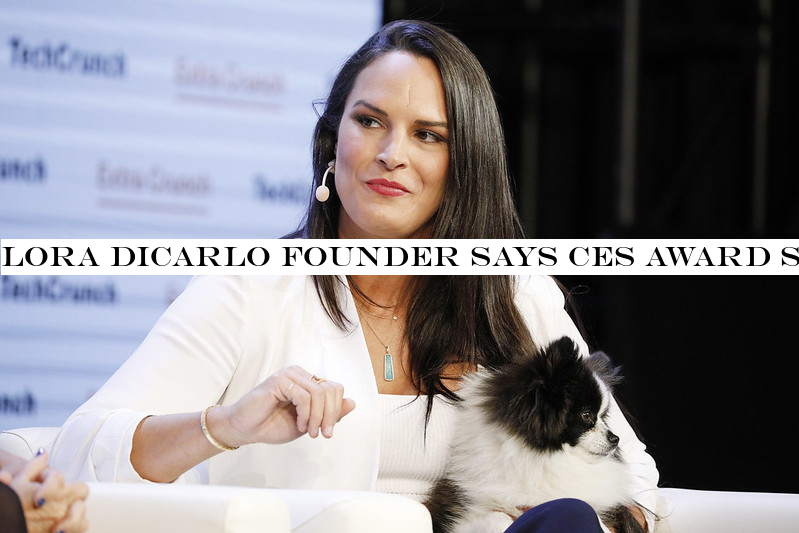Music
Trailers
DailyVideos
India
Pakistan
Afghanistan
Bangladesh
Srilanka
Nepal
Thailand
StockMarket
Business
Technology
Startup
Trending Videos
Coupons
Football
Search
Download App in Playstore
Download App
Best Collections
Technology
The wedding industry is estimated to be worth some $100 billion in the U.S. alone, and now one of the fastest-growing companies in that space — the wedding planning site Zola — is making a move to augment its position with a sidestep into travel. Today at Disrupt (our conference in San Francisco), the company is announcing Honeymoons, which will let couples plan, book and raise money for their post-nuptial travels at the same time that they plan the main event.
The beta invite is open for those interested from today. To start off, couples will be able to plan itineraries and book accommodations, with flights getting added in after the launch as part of a bigger effort to own the end-to-end marriage experience.
&Over time, we want to book all your travel needs, both before and after the wedding,& said Shan-Lyn Ma, the companyCEO and founder.
Zola business today is based around pre-wedding organization: users can set up free websites, design and print (paid) wedding invitations, and create Zola-based gift registries for family and friends to buy goods for the couple through the site — a business that has been successful enough to net the company more than $140 million in funding and a $650 million valuation.
But the average time spent planning weddings is 13-18 months, and so Honeymoons will be one way for Zola to extend that relationship not just in terms of money spent — honeymoons is estimated to be a $12 billion industry in the U.S. — but time spent using Zola, which in turn can help build a tighter relationship for whatever moves the company might make in the future. (One very obvious next step: parenting-related content and products.)

The Honeymoons feature also brings something else to Zola: a little breathing space. The online market for wedding planning is old and massive — itone of the first kinds of e-commerce sites that emerged with the rise of the world wide web itself, and as such there are a lot of large and incumbent competitors. However, &honeymoons& has been generally a more fragmented space, where people plan their own trips themselves via sites that cater to other kinds of travel like vacations, making &online honeymoon planning& far less of an industry per se, and making Zolamove into the area relatively less pressured.
Ma said that the decision to launch the business came from couples requesting the feature, and ittaking the rollout relatively slowly. The service will start with a limited number of markets that Zola chose based on them already being popular honeymoon destinations. The plan will be to expand the list to many more locations over time.
&We know where all the key destinations are based on demand from couples,& she added.
Within that list, Zola has negotiated special packages for accommodation and flights. It will also come with a personalized twist: couples input their preferences and are offered honeymoon packages designed to fit their tastes.
&Through our technology and our team of travel experts, couples can tell us, this is what they would love to do for their honeymoon,& explained Ma. &This is their general travel style, budget and dates. Then we will send back an itinerary…[and they can] book with us from there. At launch next month, it will be focused first and foremost on accommodation and experiences. Over time, we would aim to help you with everything you need to do on your honeymoon,& she said.
Ma said thousands of customers have already signed up for the waitlist for the new honeymoons product, which will officially launch next month.
Zola already has a strong connection to a wider marketplace that taps into how millennials and younger consumers, in general, like to shop today, offering a Houzz-style approach of letting users create &look books& for their aesthetics, and giving them flexibility to either register for specific items, or to cash out in gift cards that can be used on other goods and services.
The Honeymoons move will give the company an opening to working with other companies much more closely, specifically those in the travel industry, to create cohesive experiences. Given how many weddings today are focused around &destinations,& this also opens the door to planning events for more than just the couples involved.
- Details
- Category: Technology
Read more: Zola, the $650M wedding portal, taps the travel market with an expansion into honeymoons
Write comment (97 Comments)Here we go again. Western governments are once again dialing up their attack on end-to-end encryption — calling for either no e2e encryption or backdoored e2e encryption so platforms can be commanded to serve state agents with messaging data in &a readable and usable format.&
U.S. Attorney General William Barr, acting U.S. Homeland Security Secretary Kevin McAleenan, U.K. Home Secretary Priti Patel and Australiaminister for home affairs, Peter Dutton, have co-signed an open letter to Facebook calling on the company to halt its plan to roll out e2e encryption across its suite of messaging products. Unless the company can ensure what they describe as &no reduction to user safety and without including a means for lawful access to the content of communications to protect our citizens,& per a draft of the letter obtained by BuzzFeed ahead of publication later today.
If platforms have e2e encryption, a &means for lawful access& to the content of communications sums to a backdoor in the crypto — presumably along the lines of the &ghost protocol& that U.K. spooks have been pushing for the past year. AKA an &exceptional access mechanism& that would require platforms CC&ing a state/law enforcement agent as a silent listener to eavesdrop on a conversation on warranted request.
Facebook -owned WhatsApp was one of a number of tech giants joining an international coalition of civic society organizations, security and policy experts condemning the proposal as utter folly earlier this year.
The group warned that demanding a special security hole in encryption for law enforcement risks everyonesecurity by creating a vulnerability which could be exploited by hackers. Or indeed, service providers themselves. But the age-old &thereno such thing as a backdoor just for you& warning appears to have fallen on deaf ears.
In their open letter to Facebook, the officials write: &Companies should not deliberately design their systems to preclude any form of access to content, even for preventing or investigating the most serious crimes. This puts our citizens and societies at risk by severely eroding a companyability to detect and respond to illegal content and activity, such as child sexual exploitation and abuse, terrorism, and foreign adversaries& attempts to undermine democratic values and institutions, preventing the prosecution of offenders and safeguarding of victims. It also impedes law enforcementability to investigate these and other serious crimes.&
Of course, Facebook is not the only messaging company using e2e encryption, but itin the governments& crosshairs now on account of a plan to expand its use of e2e crypto — announced earlier this year, as part of a claimed &pivot to privacy.& And, well, on account of it having two billion+ users.
The officials claim in the letter that &much& of the investigative activity, which is critical to protecting child safety and fighting terrorism, &will no longer be possible if Facebook implements its proposals as planned.&
&Risks to public safety from Facebookproposals are exacerbated in the context of a single platform that would combine inaccessible messaging services with open profiles, providing unique routes for prospective offenders to identify and groom our children,& they warn, noting that the Facebook founder expressed his own concerns about finding &the right ways to protect both privacy and safety.&
In March, Mark Zuckerberg also talked about building &the appropriate safety systems that stop bad actors as much as we possibly can within the limits of an encrypted service.&
Which could, if you&re cynically inclined, be read as Facebook dangling a carrot to governments — along the lines of: &We might be able to scratch your security itch, if your regulators don&t break up our business.&
Ironically enough, the high-profile intervention by officials risks derailing Facebookplan to unify the backends of its platforms — widely interpreted as a play to make it harder for regulators to act on competition concerns and break up Facebookbusiness empire along messaging product lines: Facebook, WhatsApp, Instagram.
Or, well — alternative scenario — Facebook could choose to strip e2e crypto from WhatsApp, which is currently the odd one out in its messaging suite on account of having proper crypto. Governments would sure be happy if it did that. But itthe opposite of what Zuckerberg has said heplanning.
Curiously, the draft letter makes no mention of platform metadata. Which is not shielded by even WhatsAppe2e encryption. And thus can be extracted — via a warrant — in a readable format for legit investigative purposes. And letnot forget U.S. spooks are more than happy to kill people based on metadata.
Instead the officials write: &We must find a way to balance the need to secure data with public safety and the need for law enforcement to access the information they need to safeguard the public, investigate crimes, and prevent future criminal activity. Not doing so hinders our law enforcement agencies& ability to stop criminals and abusers in their tracks.&
The debate is being framed by spooks and security ministers as all about content.
Yet a scrambled single Facebook backend would undoubtedly yield vastly more metadata, and higher-resolution metadata, on account of triangulation across the services. So it really is a curious omission.
We&ve reached out to Facebook for its reaction to the letter. BuzzFeed reports that it sent a statement in which it strongly opposes government attempts to build backdoors. So if Facebook holds firm to that stance it looks like another big crypto fight could well be brewing. À la Apple versus the FBI.
Bilateral Data Access Agreement
In another announcement being made today, the U.K. and the U.S. have signed a &world first& Bilateral Data Access Agreement thatintended to greatly speed up electronic data access requests by their respective law enforcement agencies.
The agreement is intended to replace the current process, which sees requests for communications data from law enforcement agencies submitted and approved by central governments via a process called Mutual Legal Assistance — which can take months or even years.
Once up and running, the claim is the new arrangement will see the process reduced to a matter of weeks or even days.
The agreement will work reciprocally with the U.K. getting data from U.S. tech firms, and the U.S. getting access from U.K. communication service providers (via a U.S. court order).
Any request for data must be made under an authorisation in accordance with the legislation of the country making the request and will be subject to independent oversight or review by a court, judge, magistrate or other independent authority, per the announcement.
The U.K. also says specifically that it has obtained &assurances& which are in line with the governmentcontinued opposition to the death penalty in all circumstances. Which is only mildly reassuring given the home secretaryprevious views on the topic.
The announcement also makes a point of noting the data access agreement does not change anything about how companies can use encryption — nor prevent them from encrypting data.
For interfering with proper encryption the plan among this trio of signals intelligence allies is, seemingly, to reach for the old PR lever and apply public pressure. So, yeah, here we go again.
- Details
- Category: Technology

WeWork, the co-working business once valued at $47 billion, isexpected to announce significant layoffs this month, Bloomberg reports. This follows reports the company was looking to slash as many as 5,000 roles, or one-third of its workforce.
Now expected to go public in 2020 at a valuation as low as $10 billion, WeWork is also in negotiations with JPMorgan for a last-minute cash infusion to replace the capital expected from the now-postponed IPO, per reports. The company, now a cautionary tale, has been working with bankers in recent weeks to reduce the sky-high costs of its money-losing operation.
News of potential layoffs come about two weeks after co-founder and chief executive officer Adam Neumann resigned from his post and the nine-year-old company postponed its highly anticipated initial public offering. Neumann is now serving as the companynon-executive chairman, succeeded by WeWorkformer vice chairman Sebastian Gunningham and the companypresident and chief operating officer Artie Minson.
The embattled company has been struggling to satisfy Wall Street skeptics, who were floored by the companyeye-popping valuation. Since Neumannresignation, WeWork has begun several cost-cutting initiatives and is reportedly looking to sell off several of its acquisitions, including Managed by Q, Conductor and Meetup.
Layoffs are a natural next step for the business as it aims to carve out a clear path to profitability, now a requisite for a 2020 IPO. To float at any point in the future, after all, WeWork must prove elevating &the worldconsciousness&will eventually lead to profits.
WeWork revealed an unusual IPO prospectus in August after raising more than $8 billion in equity and debt funding. Despite financials that showed losses of nearly $1 billion in the six months ending June 30, the company still managed to accumulate a valuation as high as $47 billion, largely as a result of Neumannfundraising abilities.
&As co-founder of WeWork, I am so proud of this team and the incredible company that we have built over the last decade,& Neumann said in a statement confirming his resignation. &Our global platform now spans 111 cities in 29 countries, serving more than 527,000 members each day. While our business has never been stronger, in recent weeks, the scrutiny directed toward me has become a significant distraction, and I have decided that it is in the best interest of the company to step down as chief executive. Thank you to my colleagues, our members, our landlord partners, and our investors for continuing to believe in this great business.&
WeWork declined to comment.
- Details
- Category: Technology
Read more: WeWork expected to announce major layoffs
Write comment (91 Comments)Once you get up high enough, you don&t have to worry about a lot of the obstacles like pedestrians and traffic jams that plague autonomous cars. Thatwhy Sebastian Thrun, Googleself-driving team founder turned CEO of flying vehicle startup Kitty Hawk, said onstage at TechCrunch Disrupt SF today that we should expect true autonomy to succeed in the air before the road.
&I believe we&re going to be done with self-flying vehicles before we&re done with self-driving cars,& Thrun told TechCrunch reporter Kirsten Korosec.
Why? &If you go a bit higher in the air then all the difficulties with not hitting stuff like children and bicycles and cars and so on just vanishes . . . Go above the buildings, go above the trees, like go where the helicopters are!& Thrun explained, but noted personal helicopters are so noisy they&re being banned in some places like Napa, Calif.
That proclamation has wide-reaching implications for how cities are planned and real estate is bought. We may need more vertical take-off helipads sooner than we needed autonomous car-only road lanes. More remote homes in the forest that have only a single winding road that reaches them like those in Big Sur, Calif. might suddenly become more accessible and thereby appealing to the affluent because they could just take a self-flying car to the city or office.
The concept could also have wide-reaching implications for the startup industry. Obviously Thrunown company, Kitty Hawk, would benefit from not being too early to market. Kitty Hawk announced its Heaviside vehicle today thatdesigned to be ultra quiet. If the prophecy comes true, Uber, which is investing in vertical take-off vehicles, could also be in a better position than Lyft and other ride-hailing players focused on cars.
To make sure its vehicles don&t get banned and potentially pave the way for more aerial autonomy, Kitty Hawk recently recruited former FAA Administrator Mike Huerta as an advisor.
Eventually, Thrun says that because cars have to navigate indirect streets but in the air &we can go in a straight line, we believe we will be roughly a third of the energy cost per mile as Tesla.& And with shared UberPool-style flights, he sees the cost of energy getting down to just &$0.30 per mile.&
But in the meantime, Thrun is trying to get people, including me, to stop saying flying cars. &I personally don&t like the word ‘flying car,& but itvery catchy. The technical term is called eVTOL. These are typically electrically propelled vehicles, they can take off and land vertically, eVTOLs, vertical take-off landing, so that you don&t need an airport. And then they fly very much like a regular plane.& We&ll see if that mouthful catches on, and if the skies get more congested before the roads thin out.

- Details
- Category: Technology
Read more: We’ll have self-flying cars before self-driving cars, Thrun says
Write comment (99 Comments)Orbit Fab, one of the companies competing in this yearTechCrunch Disrupt Battlefield in San Francisco this week, has closed a seed round of $3 million. The funding comes from Type 1 Ventures, TechStars and others, and will help Orbit Fab continue to build on the great momentum it has already bootstrapped with its space-based robotic refueling technology.
You might remember the name Orbit Fab from a milestone accomplishment the young company achieved earlier this year: Becoming the first startup to supply water to the International Space Station, itself an achievement but also a key demonstration of the viability of its technology for use in orbital satellite refueling. Refueling satellites could have tremendous impact on the commercial satellite business, extending the operating life of expensive satellites considerably, which translates to better margins and more profitable businesses.
Thanks to co-founders Daniel Faber and Jeremy Schielconnections in the space industry, from more than 15 years working in space technology businesses in a leadership capacity, the company was able to demonstrate its technology working in space less than a year after Orbit Fab was actually founded. Faber, Orbit FabCEO, and Schiel, the startupCMO, met when both were working at Deep Space Industries & Faber as CEO and Schiel as a contractor.

Orbit Fabfirst space payload, the ISS water resupply robot.
&We ended up reconnecting later on and really looking at a few different business models on how to push the industry forward,& Schiel said in an interview. &The one that really landed with customers, and the one that resonated with the industry was refueling satellites. Elon [Musk] has been making rockets reusable & we thought ittime that we make satellites reusable as well.&
Starting from this realization, the pair founded the company in January 2018. They then secured their first round of pre-seed investment from Bolt in San Francisco in June that year, and also landed two contracts & including one with NASA, and one with the International Space Station National Laboratory.
&Basically in four-and-a-half months, we got flight-qualified and human-rated from NASA our two tanker test beds that we flew to the International Space Station in December 2018, and March of 2019,& Shield said.
How did they do it with that speed? Faber credits their rapid progress largely to lead engineer James Bultitude, an accomplished space engineer with five payloads on the International Space Station already.
&He took [the project] from a napkin through to flight hardware in four-and-a-half months,& Faber said. &All qualified to NASA human-rated safety standards, which was quite the feat. We really had to push hard on NASA.&
[gallery ids="1889753,1889752,1889751,1889750,1892269,1892267,1892261,1892260,1892259,1892257"]
Faber said that the companyability to spur the U.S. space agency into action has been a key driver of its success. In fact, he relayed a story in which their National Lab demonstration payload was actually left off of its intended flight, but the team was able to get its cargo approved by top NASA decision-makers over the course of a weekend and just barely made the cut as a result.
As for working with NASA as a startup, Faber said that itbecome a very different affair, with the agency eager and adapting to working more with younger companies and startups bringing a different pace of innovation to the field.
&The change is almost palpable on the phone with NASA & you can almost hear them changing,& he said.
At Disrupt, Orbit Fab demonstrated their robotic connector for refueling on stage for the first time. The idea is that satellite makers will build their standard nozzles into their designs, and then a robotic refueler will be able to seek out the nozzle, open and then close on to the coupler, forming a solid connection to allow propellant transfer.
Already, Orbit Fab is talking to partners, including Northrop Grumman, and ita member of the Consortium for Execution of Rendezvous and Servicing Operations (CONFERS), an industry group that aims to make robotic service and maintenance of satellites a viable reality.
- Details
- Category: Technology
Read more: Orbit Fab raises $3M to make orbital refueling easier, cheaper and more accessible
Write comment (92 Comments)
CES parent the Consumer Technology Association created a public relations disaster in January when it unceremoniously revoked an award from sex tech startup, Lora DiCarlo and its product Osé.
&Vela [now Osé] does not fit into any of our existing product categories and should not have been accepted for the Innovation Awards Program,& the organization wrote at the time. &CTA has communicated this position to Lora DiCarlo. We have apologized to the company for our mistake.&
The CTA would go on to apologize and reinstate the award. During a panel today at TechCrunch Disrupt, founder and CEO Lora Haddock told the audience, that in hindsight, &I think they actually did us a pretty big favor.&
Back in May, we noted that the CTAapology serendipitously coincided with a $2 million funding raise for the companyadvanced sex toy. Haddock noted that, while the CTAinitial move was understandably both &disheartening& and &devastating,& the startupdecision to push back on historical biases, including booth babes and the underrepresentation of female speakers, ultimately became a win.
&We started to really look at some of their policies and recent procedures in the last few years,& Haddock said. &A lot of booth babes products that were on the floor are geared towards male sexuality, but apparently something geared towards a female gaze was frowned upon. So, we fought it, and eventually we ended up winning, we ended up on an international press circuit, we got a ton of ton of coverage.&
- Details
- Category: Technology
Read more: Lora DiCarlo founder says CES award snub did company ‘a pretty big favor’
Write comment (91 Comments)Page 731 of 5614

 14
14





